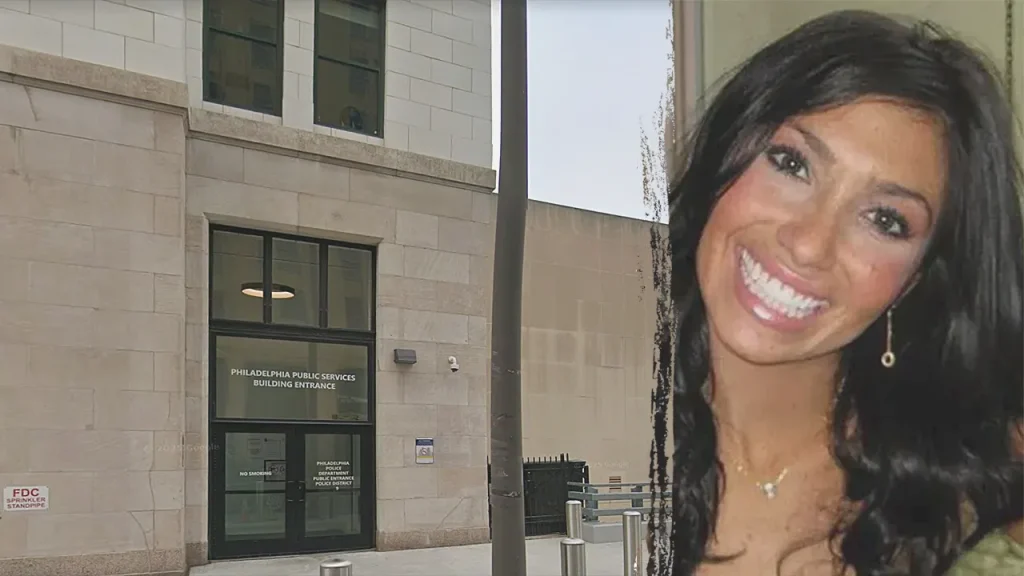A Young Teacher’s Mysterious Death: Ellen Greenberg Case Continues to Divide Opinions
In a case that has haunted Philadelphia for over a decade, 27-year-old schoolteacher Ellen Greenberg’s death has once again been classified as suicide following a recent review by the Philadelphia Medical Examiner’s Office. This latest ruling maintains the controversial stance that Greenberg took her own life on January 26, 2011, despite suffering 20 stab wounds to her back, neck, and head—with a knife found embedded in her chest. The young first-grade teacher at Juniata Park Academy had returned home early that day due to a snowstorm when tragedy struck. Her fiancé, Samuel Goldberg, reported finding her body after forcing open their apartment door when she didn’t respond to his attempts to contact her. From the beginning, authorities noted there were no signs of forced entry, and Goldberg was never considered a suspect or charged with any crime in connection with her death.
The circumstances surrounding Greenberg’s death have stirred intense debate and scrutiny for years. Initially classified as a homicide in 2011, Assistant Medical Examiner Dr. Marlon Osbourne later changed the manner of death to suicide after meeting with Philadelphia Police investigators—a decision that has fueled relentless legal challenges from her family. The most recent review, conducted by Chief Medical Examiner Lindsay Simon as part of a settlement with Greenberg’s parents, concluded that “while the distribution of injuries is admittedly unusual, the fact remains that Ellen would be capable of inflicting these injuries herself,” suggesting she was a “young woman suffering from anxiety.” The report also noted that the fiancé’s DNA was not detected on the knife used to inflict the injuries, and investigators found no evidence of an abusive relationship or signs of a struggle at the scene.
The Greenberg family, however, vehemently rejects the suicide ruling. Their attorney, Joseph Podraza Jr., issued a scathing response, calling the review “a deeply flawed attempt to justify a predetermined conclusion.” Podraza specifically challenged one of the report’s claims that “a stab wound in Ellen’s spinal column was made during the autopsy,” which he states has been “rejected by every credible expert, including the City’s own neuropathologist.” He further accused the investigation of “ignoring key evidence that contradicts suicide,” including 3D photogrammetry analysis that allegedly proves Greenberg could not have self-inflicted all the wounds, unexplained bruises, missing surveillance footage, and accounts of what he described as a “toxic relationship.”
This latest chapter in the Greenberg case follows years of determined advocacy by her parents, who have consistently sought to have their daughter’s manner of death changed to homicide or at least reclassified as undetermined. In February, the family settled lawsuits with the City of Philadelphia and others, with the agreement including this reevaluation of Ellen’s cause of death. Despite the medical examiner’s renewed conclusion of suicide, Podraza declared that “Ellen’s family just wanted the truth,” and asserted that “it is clear the truth will not come from Philadelphia’s law enforcement machinery.” He promised they would “continue through other avenues to get justice for her murder, by any means necessary.”
The circumstances of Greenberg’s death continue to trouble many observers. The locked apartment door, the multiple stab wounds—particularly those to her back—and the absence of defensive wounds have created lingering questions about how these injuries could be self-inflicted. The city’s position has remained consistent, with Chief Medical Examiner Simon concluding in her report that after considering all available information, Greenberg’s death is “best classified as ‘suicide.'” However, the passion with which the family continues to challenge this finding underscores the difficulty in reconciling the physical evidence with the official conclusion. Podraza did not mince words in his response, calling Simon’s report “an embarrassment to the City, and an insult to Ellen and her family.”
As this case moves forward, it stands as a troubling example of how forensic determinations, even when made by qualified professionals, can remain contested when surviving family members find the conclusions incompatible with their understanding of their loved one. The Greenberg family’s persistent pursuit of what they believe to be justice for Ellen highlights the profound impact that disputed death classifications can have on the grieving process. While the Philadelphia Medical Examiner’s Office has once again taken its position, the controversy surrounding Ellen Greenberg’s tragic end seems far from resolved, with her family committed to challenging the suicide ruling through whatever means remain available to them. Whether new evidence or perspectives might eventually emerge to change the official stance remains an open question in this heartbreaking case that continues to defy simple explanation.


